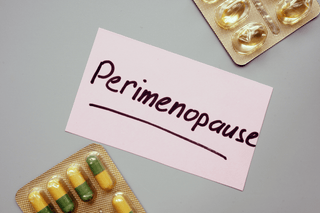Perimenopause can feel like a rollercoaster. Hot flushes, night sweats, mood swings, weight changes, brain fog – the list can feel never-ending. What many women don’t realise is that stress plays a huge role in how intense these symptoms become.
In fact, stress doesn’t just add to the chaos, it can make perimenopause symptoms worse.
What happens to hormones in perimenopause
Perimenopause is the transitional stage before menopause, usually starting in a woman’s 40s (sometimes earlier). During this time, estrogen and progesterone levels naturally fluctuate and decline. These shifts affect everything from mood to metabolism, sleep to skin health.
But hormones don’t act alone. The stress hormone cortisol interacts with estrogen and progesterone, and when cortisol stays high for too long, it can throw this delicate balance even further off track.
How stress makes perimenopause harder
Chronic stress affects the body in several key ways:
-
Worsens hot flushes and night sweats
High cortisol disrupts thermoregulation, which can make hot flushes feel more frequent and intense. -
Impacts sleep quality
Cortisol can delay melatonin release, leading to difficulty falling asleep or staying asleep. Sleep loss then amplifies irritability and fatigue. -
Increases anxiety and mood swings
Estrogen supports serotonin and dopamine activity. When estrogen dips and stress rises, mood can feel unstable. -
Contributes to weight gain around the belly
Cortisol promotes fat storage in the abdominal area. Combined with shifting estrogen, this makes body composition changes more noticeable. -
Adds to brain fog
Stress can impair memory and focus by affecting the prefrontal cortex – the same part of the brain already impacted during perimenopause.
Why stress and hormones are a double hit
Think of it this way: perimenopause lowers the body’s hormonal “buffer zone.” Stress then drains what’s left of your resilience. Together, they create a feedback loop that can make small issues feel overwhelming.
Practical ways to handle stress in perimenopause
You can’t stop perimenopause, but you can reduce the impact of stress on your symptoms. Some strategies include:
-
Functional breathing practices to calm the nervous system (there are so many options on YouTube you can follow along with).
-
Regular movement like Pilates, yoga, or walking to regulate cortisol.
-
Nutrition and supplementation that support stress and hormone balance.
-
Setting boundaries with work, family, and technology to protect rest.
-
Daily rituals (even 5 minutes) that create calm – like journaling, herbal tea, or time outdoors.
The bottom line
Perimenopause is already a time of transition, and stress adds unnecessary fuel to the fire. By focusing on stress relief, you may notice improvements not just in how you feel day to day, but in how manageable your perimenopause symptoms become.
At Glowable, we believe stress is at the root of many modern health challenges. Supporting women through this stage of life with evidence-based, naturopath-formulated solutions is at the heart of what we do.

